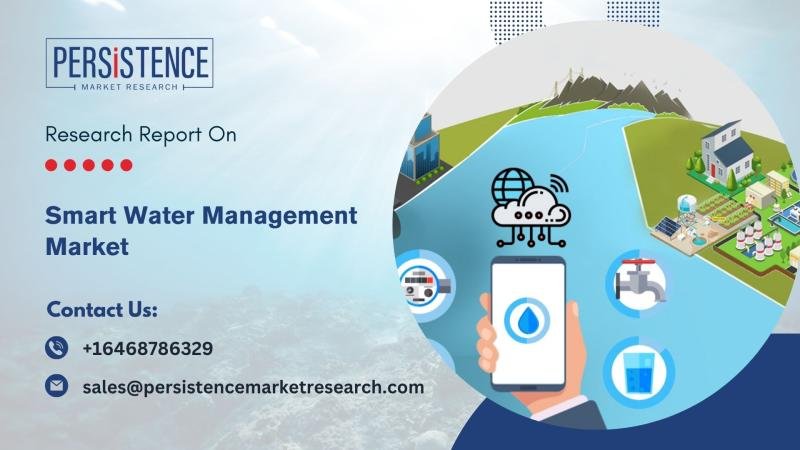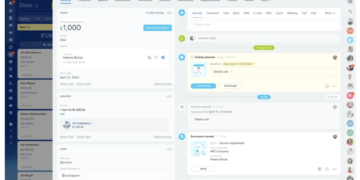Market Overview
The global smart water management market is witnessing a remarkable transformation driven by the pressing need for efficient water usage and sustainable practices. Valued at US$17.2 billion in 2024, the market is expected to reach US$39.2 billion by 2031, growing at an impressive CAGR of 12.5% during the forecast period. This growth reflects a broader global shift toward smarter infrastructure solutions to combat water stress, aging utilities, and climate change impacts.
Key growth drivers include rising urbanization, increasing global water demand, and technological advancements like IoT, AI-based analytics, and real-time data sensors. Among all segments, smart water meters lead the market due to their ability to provide accurate and real-time consumption data. North America dominates the global landscape, attributed to its early adoption of digital water solutions, robust infrastructure, and supportive government policies promoting sustainable water practices.
Elevate your business strategy with comprehensive market data. Request a sample report now: https://www.persistencemarketresearch.com/samples/33892
➤ Key Highlights from the Report
1. ➤ The global smart water management market is set to grow at a CAGR of 12.5% from 2024 to 2031.
2. ➤ The market value is projected to increase from US$17.2 billion in 2024 to US$39.2 billion by 2031.
3. ➤ North America is the leading regional market, backed by strong regulatory frameworks and high-tech adoption.
4. ➤ Smart water meters continue to dominate product-type segments due to rising water conservation initiatives.
5. ➤ Utilities and municipalities are the primary end-users, driven by the need for optimized water distribution.
6. ➤ Top four countries together account for over 52% of global revenue as of 2023.
Market Segmentation
The smart water management market can be segmented by component, solution, and end-user. By component, the market includes hardware (e.g., sensors, meters), software (analytics platforms, SCADA systems), and services (consulting, maintenance). Among these, hardware components hold the largest share, owing to the widespread deployment of smart meters and pressure sensors in water utility networks.
Based on end-users, the market serves municipal, industrial, and residential sectors. The municipal segment leads in terms of adoption, driven by the need to modernize aging infrastructure, minimize water losses, and comply with stringent environmental regulations. Meanwhile, industrial users are investing in smart water systems for wastewater management and process optimization.
Regional Insights
North America leads the smart water management market, driven by high awareness, digitalization of public utilities, and strong government mandates. The U.S. in particular has implemented large-scale smart meter rollouts and supports sustainability initiatives through funding and regulations.
Europe follows closely, with countries like Germany, the U.K., and France investing heavily in smart grid and water efficiency programs. The Asia-Pacific region is witnessing rapid growth due to urban expansion, government-led smart city projects, and increasing awareness about water conservation, especially in China and India.
Market Drivers
The primary driver for market growth is the increasing global demand for water due to rising population and urbanization. Cities across the globe are under pressure to meet growing water needs, prompting utilities to adopt smart technologies that optimize distribution, reduce losses, and improve service delivery. Furthermore, climate change and unpredictable weather patterns are exacerbating water stress, making advanced water monitoring systems a necessity.
Market Restraints
Despite its potential, the market faces several restraints. One major hurdle is the high cost of deployment for smart infrastructure, which includes sensors, communication networks, and integration platforms. Additionally, many utilities, especially in developing nations, struggle with budget constraints and lack the technical expertise required for digital transformation. Data privacy concerns and resistance to change from traditional utility models also hamper widespread adoption.
Market Opportunities
The smart water management market holds significant opportunities in the form of IoT and AI integration. As costs of sensors and connectivity continue to drop, even small-scale utilities and municipalities can afford to implement smart solutions. Moreover, the rise of cloud-based platforms allows for scalable, cost-effective analytics and monitoring. Emerging economies offer untapped potential as they develop new infrastructure and participate in global sustainability efforts.
Do You Have Any Query Or Specific Requirement? Request Customization of Report: https://www.persistencemarketresearch.com/request-customization/33892
Frequently Asked Questions (FAQs)
1. ➤ How big is the smart water management market in 2024?
2. ➤ What is the projected growth rate of the smart water management market through 2031?
3. ➤ Who are the key players in the global smart water management market?
4. ➤ What is the market forecast for smart water management in 2031?
5. ➤ Which region is estimated to dominate the smart water management industry during the forecast period?
Company Insights
✦ IBM Corporation
✦ Siemens AG
✦ Schneider Electric SE
✦ SUEZ Group
✦ Itron Inc.
✦ Honeywell International Inc.
✦ ABB Ltd.
✦ Oracle Corporation
✦ Xylem Inc.
✦ Badger Meter, Inc.
■ In 2024, Xylem Inc. announced a strategic partnership with Esri to enhance data visualization in water utilities using GIS-enabled analytics.
■ Itron Inc. introduced a new AI-powered leak detection solution, reducing water loss and improving operational efficiency for municipal clients.
Conclusion
The smart water management market is on a transformative trajectory as water scarcity, infrastructure aging, and environmental concerns necessitate intelligent, tech-enabled solutions. With a strong forecast of 12.5% CAGR through 2031, the industry promises not only robust growth but also meaningful impacts on global sustainability efforts. As digital tools like AI, IoT, and cloud computing become more accessible, their role in reshaping water utility operations will only expand, offering unprecedented efficiencies and resilience. Policymakers, municipalities, and technology providers must now collaborate to unlock the full potential of smart water ecosystems worldwide.
Contact Us:
Persistence Market Research
G04 Golden Mile House, Clayponds Lane
Brentford, London, TW8 0GU UK
USA Phone: +1 646-878-6329
UK Phone: +44 203-837-5656
Email: sales@persistencemarketresearch.com
Web: https://www.persistencemarketresearch.com
About Persistence Market Research:
At Persistence Market Research, we specialize in creating research studies that serve as strategic tools for driving business growth. Established as a proprietary firm in 2012, we have evolved into a registered company in England and Wales in 2023 under the name Persistence Research & Consultancy Services Ltd. With a solid foundation, we have completed over 3600 custom and syndicate market research projects, and delivered more than 2700 projects for other leading market research companies’ clients.
Our approach combines traditional market research methods with modern tools to offer comprehensive research solutions. With a decade of experience, we pride ourselves on deriving actionable insights from data to help businesses stay ahead of the competition. Our client base spans multinational corporations, leading consulting firms, investment funds, and government departments. A significant portion of our sales comes from repeat clients, a testament to the value and trust we’ve built over the years.
This release was published on openPR.













